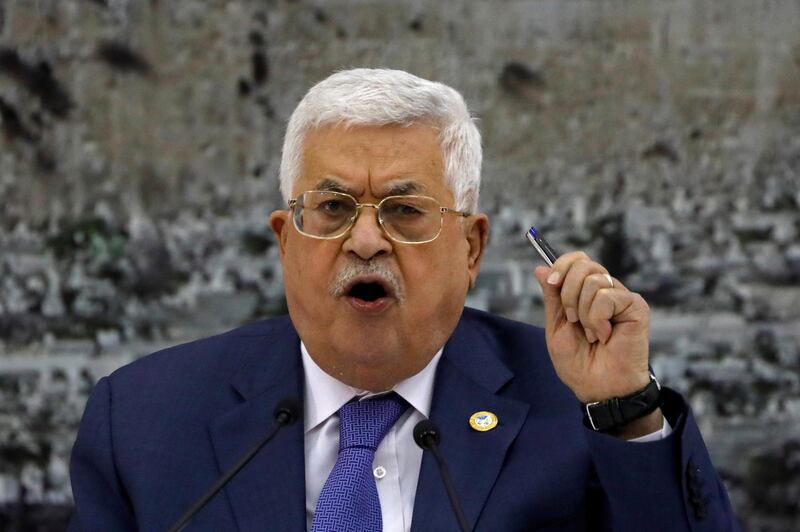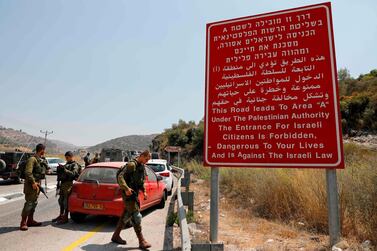The Palestinian Authority has accepted a partial payment of just over half a billion dollars from Israel under a deal that will ease a financial crisis caused by its decision earlier this year to reject transfers of tax revenue collected on its behalf by Israel.
"An agreement was reached a few days ago with the Israeli side for transferring duties on oil and fuel which the Palestinian Authority bought in Israel to the amount of around two billion shekels [$568 million]," Civil Affairs Minister Hussein Al Sheikh told Agence France Presse on Thursday.
Israel in February decided to withhold about $10m of the roughly $190m per month it collects on the PA's behalf, triggering Palestinian President Mahmud Abbas to say he would accept either all or nothing.
"Recovering this money will solve part of the financial crisis caused by the Israeli government's freezing of Palestinian funds," Mr Al Sheikh said, while stressing that it was only part of the arrears due from Israel.
Israel says the money it has been withholding corresponds to what the PA pays Palestinian prisoners in Israeli jails, or their families.
Prisoners who have carried out attacks on Israelis are among those receiving the payments, and Israel says the policy encourages further violence. Palestinians view the prisoners as fighting against Israel's occupation and say the tax funds support families that have lost their main breadwinners.
Mr Al Sheikh said the underlying political dispute had not been resolved, as the PA insisted that it would continue to pay allowances for Palestinian prisoners and the families of those killed in conflict with Israel down to the "last cent".
He said that representatives of Israel's defence ministry were present during the recent negotiations.
Israel sees the stability of the West Bank – which it occupied in the 1967 Arab-Israeli war – as essential to its own security.
Observers are concerned that economic distress in the territory could feed radicalisation of young Palestinians, already embittered by the lack of visible prospects for peace.
Official Palestinian figures show that about 30 per cent of the West Bank population is aged 15-29.
Such considerations will be key in the calculations of the Israeli government as it heads for what will probably be a tough fight for re-election in a September 17 poll.
World Bank data shows that Gross Domestic Product "barely" grew at all in 2018 in the West Bank and the Gaza Strip – the Palestinian enclave ruled by Islamist group Hamas – with unemployment at about 30 per cent in the occupied territory and as high as 50 per cent in Gaza.
Mr Abbas had accused Israel of blackmail through its withholding of funds and insisted on the transfer of the full tax collection, which accounts for about 65 per cent of PA revenues.
The money comes from customs duties levied on goods destined for Palestinian markets that transit through Israeli ports.
On Monday Mr Abbas fired all of his advisers amid the financial crisis. The PA had already cut salaries for most of its tens of thousands of employees by half to keep the government afloat.
On top of the tax dispute with Israel, the United States has cut more than $500m in aid given to Palestinians through various programmes.
That came after Mr Abbas announced a freeze in relations with Washington in protest at US recognition of Jerusalem as Israel's capital.







